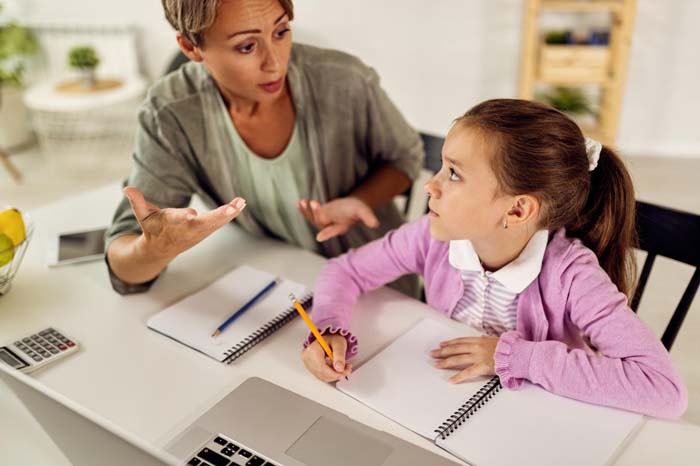Children’s intrinsic quality of learning new things is so fascinating! Their curiosity and imagination help them in learning and discovering. But there are some things or skills where a parent needs to step in and guide or teach the children. Problem solving is one such essential skill. The sooner a child is taught about various ways of problem solving, the better! After all, the early bird gets the worm 🙂
Why is this teaching problem solving skills so vital in life? Why do we need to get started early? Can preschoolers or toddlers grasp these concepts? All these questions are valid. The world in which these kids grow up is a challenging one. Children need to be equipped with skills that would help them to navigate the challenges that life would throw at them. That is why parents need to help their children in developing their critical thinking abilities, and analytical and creative skills. After all, these are skills that would help them take on the tough challenges in life.
Engaging in problem solving preschool activities can also promote a growth mindset in children, as they learn to embrace challenges as opportunities for growth and learning.
Let us look at a few activities or ways of problem solving that can be taught to preschoolers.
Trial and Error
Problem solving approach is one of the best ways to teach children anything! Trial and error is one such approach. It involves having a go at something in many ways and tweaking the approach until we get to a satisfactory outcome.
Why is this effective, you ask? Well, trial and error happen to be one of the most common methods for children to learn and solve problems. Because one needs to figure out many ways of approaching a problem, it involves creativity, perseverance, and flexibility.
It helps children to learn to think critically, evaluate the results of their actions, and adjust their strategies as and when needed. One of the biggest advantages of this method is that it develops a growth mindset in children. It is a result of embracing mistakes and failures that come along the way. Yes, the biggest drawback of this method is that it can be time-consuming and sometimes lead to mild frustration. That said, trial and error is an important part of the problem solving process as a child goes through a steep learning curve and comes up with valuable insights.
Visualizing
Some of the greatest sports persons have achieved greatness with the help of visualization. It is the process of creating a mental image or representation of something in our minds. The process involves using our thoughts and imagination to picture something that is not in front of us or physically present. It could be an object, goal, or idea.
Many successful sports persons have used this tool for problem solving and goal setting. Whenever someone visualizes a desired outcome or goal, the person ends up creating a mental blueprint or a roadmap for achieving the goal. This automatically helps the person in staying focussed on the goal. Some of the biggest advantages include reduced anxiety or fear of the unknown as this technique empowers the person to see things from a different angle or perspective. It can become a powerful tool for achieving their dreams and improving their overall well-being. Some examples are affirmations, creating a vision board and mental rehearsals.
Breaking the Problem Down
Breaking the problem down into smaller, more manageable parts is a useful way of solving complex problems. For preschoolers, this might look like breaking down the steps to completing a puzzle or figuring out how to build a tower with blocks. This method helps preschoolers develop their analytical and critical thinking skills.
Working Backwards
Suppose you want to save 5000 rupees and you get to save 200 rupees every month from your salary. How long would it take to save 5000 rupees? To work backwards, you can start with 5000 and divide it by 200 to get the number of months needed. The answer is 25 months!
This is an example of working backwards. It is one of the oldest problem-solving techniques that involves starting with the final goal and then working backwards to identify the steps needed to reach that goal. Many children (in fact many adults) feel overwhelmed when faced with a problem. They are unsure of where to start. Working backwards could be a possible solution to such children.
Once the problem is broken down into smaller, more manageable steps, children will automatically gain a sense of control and build confidence in their problem-solving abilities. Working backwards can also help children develop critical thinking skills, as they must evaluate the different steps and determine which are necessary to reach the goal.
Brainstorming
Brainstorming is a problem solving method that involves generating as many ideas as possible to solve a problem. Children generally are very good at coming up with ideas. Preschoolers can do simple tasks like writing or drawing the ideas they have in mind or they could collect various objects that could be related to their topic of discussion. This method should be encouraged at an early age as it involves creative thinking. This will indeed add to their problem solving skills.
Asking for Help
Asking for help is an important problem solving skill that preschoolers should learn. It can begin at home. Children should feel at ease asking their parents for help. Children are generally shy about such things. They could also feel intimidated to ask for help. So, it is our duty to tell them that asking someone for help is absolutely okay. They should be made to realize that asking for help is not a sign of weakness.
Collaboration
Collaboration is one of the oldest problem-solving skills that involves coming together or working with others as a team to achieve a common goal. When it comes to problem solving for kids, collaboration could be a powerful tool to enhance social skills, improve communication, and engage in creativity. When children work as a team, they learn to share ideas and respect others’ opinions. It also fosters a sense of community and belonging, which is important for children’s social and emotional development.
Collaboration can help develop skills such as negotiation, compromise, and teamwork. These skills are not only essential for personal growth but also for the professional journey ahead!
Trying a Different Approach
Trying a different approach is a problem solving method that involves stepping back from the problem and trying a different approach. For preschoolers, this might involve trying to stack blocks in a different way to make a tower or trying a different method to tie their shoes. This method helps preschoolers develop their flexibility and adaptability.
Experimenting
Experimenting is a problem solving method that involves trying out different ideas and seeing what works. For preschoolers, this might involve experimenting with different ways to mix colours or trying out different ways to make a paper airplane. Encouraging your preschooler to experiment can help them develop their curiosity and problem solving skills.
Problem solving for kids is an important aspect of their development that helps them learn to approach challenges with a positive and determined attitude. By now, you must have realized that teaching preschoolers problem solving skills is an important step in helping them develop their cognitive and social skills. By introducing them to a variety of methods, they can learn to approach problems with creativity, flexibility, and persistence. Not all skills would be helpful right away. Some of the skills that they pick up would be helpful at a later stage in life when they would encounter bigger and tougher challenges. With your guidance and support, your preschooler can become a confident and capable problem solver.
Problem solving preschool activities are essential in helping children develop their cognitive and social skills. The Eurokids curriculum is designed in a way that children are able to explore the scientific world based on observation, investigation, prediction, evidence and reasoning. Such an approach tremendously helps the children. Through problem solving preschool activities, children learn to think critically, evaluate options, and find creative solutions to various challenges.
To know more, visit a Eurokids centre near you!















